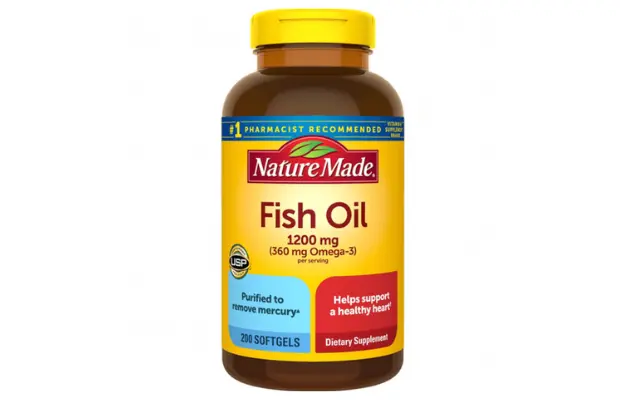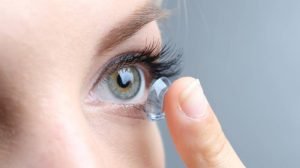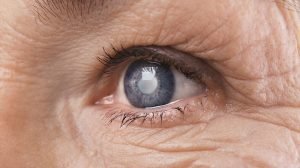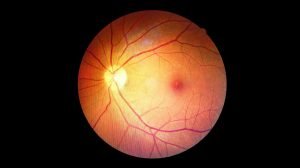In the digital age, our eyes are facing an unprecedented battle. Blue light from screens, UV rays from the sun, environmental pollution, and poor lifestyle habits are slowly eroding our vision and increasing the risk of eye conditions. The result is a rise in digital eye strain, dry eyes, nearsightedness, and more severe diseases like age-related macular degeneration (AMD) and cataracts, which are now affecting younger populations.
Eye care isn’t just about wearing sunglasses or using eye drops. A more comprehensive and sustainable approach is comprehensive eye care from within. This is a scientific strategy that focuses on nourishing the eyes at a cellular level, strengthening their resilience, and preventing diseases from the root. This article will delve into the core aspects of eye care from within, giving you a new “vision” for your eye health.
Nutrition: The Golden Foundation for Sharp and Healthy Eyes
Did you know that what you eat every day directly impacts your eye health? A scientific, nutrient-rich diet is the key factor in nourishing your eyes from the inside, protecting your retina, and maintaining sharp vision.
Super Antioxidants
- Lutein and Zeaxanthin: These two carotenoids act as a natural “shield” for the macula, the central part of the retina responsible for sharp, central vision. They filter harmful blue light and neutralize free radicals, reducing the risk of age-related macular degeneration (AMD). A study by the U.S. National Eye Institute (NEI) has shown that supplementing with lutein and zeaxanthin can slow the progression of intermediate-stage AMD. You can find them in kale, spinach, broccoli, and egg yolks. To improve absorption, consume them with a little fat, like olive oil.
- Astaxanthin: Hailed as the “king” of antioxidants, astaxanthin is five times more potent than lutein and 550 times stronger than vitamin E. This compound can cross the blood-brain and blood-retinal barriers, protecting your eyes from free radical damage. Astaxanthin helps reduce eye fatigue, improve blood flow to the eyes, and enhance focus. It’s especially crucial for office workers, long-distance drivers, and athletes. Abundant sources include salmon, shrimp, crab, and microalgae.
- Vitamins C and E: These two vitamins work synergistically to protect eye cells from damage. Vitamin C helps regenerate Vitamin E, enhancing its antioxidant effect. Along with zinc and beta-carotene, this duo is a key component of the AREDS formula, which has been shown to slow the progression of macular degeneration.
>> Foods Good for Your Eyes: A Nutritional Guide for Bright, Healthy Vision
Omega-3 (DHA & EPA)
Omega-3 fatty acids, particularly DHA, make up a significant portion of the retina’s structure. A deficiency in DHA can affect visual function. Omega-3 helps maintain the integrity of retinal cells, reduces inflammation, and improves dry eye symptoms. A study in the Journal of Ophthalmology found that omega-3 supplementation significantly reduced dry eye symptoms in office workers. You can find these in salmon, tuna, mackerel, chia seeds, and walnuts. Aim to eat fatty fish at least two to three times a week.
Healthy Lifestyle: The Golden Key to Sustainable Vision Protection
Beyond nutrition, a scientific lifestyle plays a significant role in protecting your eyes in the long term.
Managing Screen Time and Digital Eye Strain
- The 20-20-20 Rule: This is a golden recommendation from ophthalmologists. For every 20 minutes of screen time, look at an object 20 feet (about 6 meters) away for 20 seconds. This simple action helps your eye muscles relax and reduces digital eye strain.
- Optimize Your Workspace: Position your computer screen 20-28 inches (50-70 cm) away from your eyes and slightly below eye level. Use natural light whenever possible and avoid direct glare on your screen. Consider using a blue light filter on your screens or glasses to mitigate the negative effects of blue light exposure, especially during long work sessions.
Sleep and Hydration: Eye Restoration and Rejuvenation
- Prioritize Quality Sleep: Sleep is your body’s time for repair and recovery, including your eyes. Chronic sleep deprivation can lead to eye fatigue, dry eyes, and dark circles. Aim for 7-8 hours of quality sleep per night to allow your eyes to fully recover.
- Stay Hydrated: Water is the main component of tears. Dehydration can affect tear production, leading to uncomfortable dry eye symptoms. Drinking enough water throughout the day helps maintain eye moisture.
Supplements: An Intelligent Solution for Comprehensive Eye Health
In some cases, a daily diet may not provide all the necessary nutrients. That’s when eye health supplements become an effective solution to nourish and protect your eyes.
When to Consider Supplements: Expert Advice
You should consider eye supplements if you:
- Work long hours on screens (office workers, students).
- Are an older adult at risk for AMD and cataracts.
- Have an unbalanced diet lacking essential vitamins and minerals.
- Experience persistent eye fatigue or dry eye symptoms.
How to Choose High-Quality Eye Supplements
- Ingredients: Prioritize products with scientifically-backed ingredients like lutein, zeaxanthin, omega-3, astaxanthin, and vitamins A, C, E, and zinc.
- Source: Choose reputable brands with clear sourcing and certified quality control.
- Consult a Professional: Always consult with your doctor or pharmacist before taking any supplement to ensure it’s right for your health needs.
>> Read more: Eye Problems in Children and Genetic Eye Diseases
Conclusion
Comprehensive eye care from within is not a temporary fix but a lifelong strategy. By combining a scientific diet, a healthy lifestyle, and smart supplementation, you are investing in your most valuable asset—your eyes. Start today to protect your vision, maintain your clarity, and fully enjoy the beauty of the world around you.









